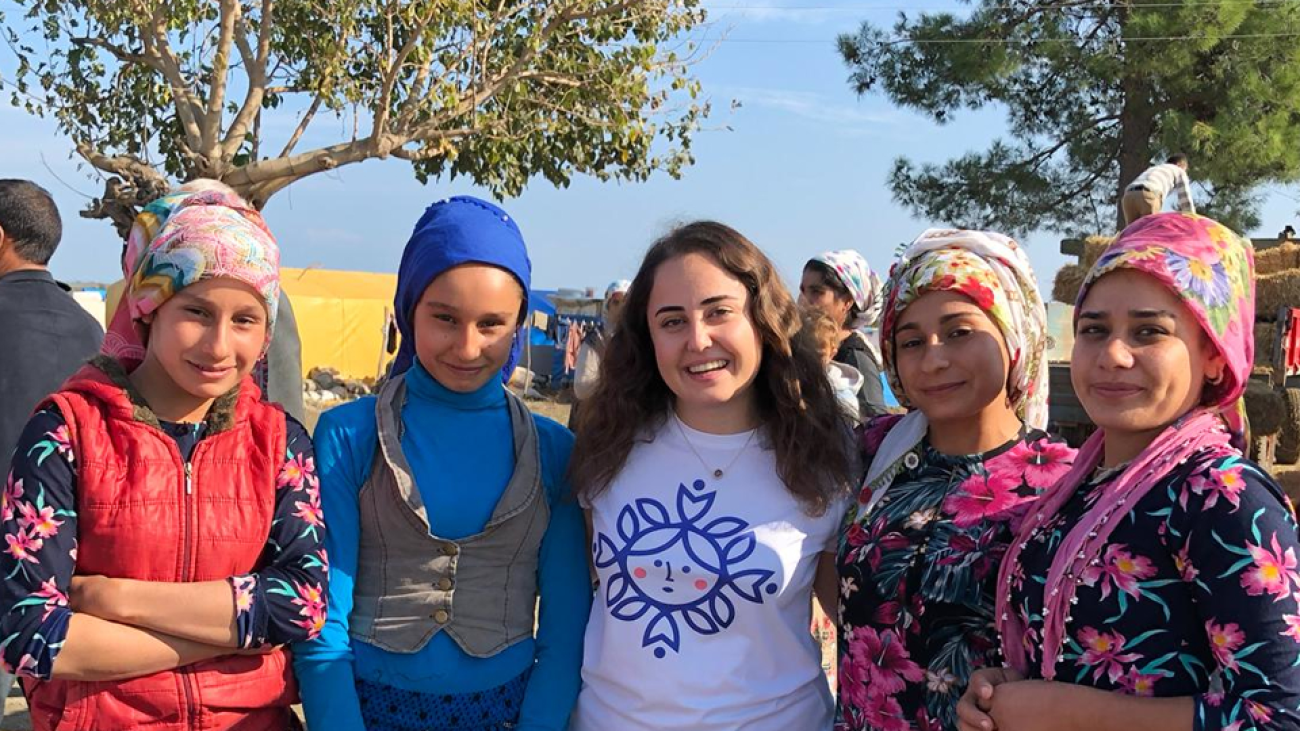Take Five: “Periods don´t stop for pandemics! Neither does the fight for gender equality!”

İlayda Eskitaşçioğlu, 26, a human rights lawyer from Turkey is working on ending stigma around menstruation through the NGO she founded.
İlayda Eskitaşçioğlu, 26, is a human rights lawyer from Turkey, a Ph.D. student in International Human Rights Law and a member of the Beijing+25 Global Youth Task Force. She works to end stigma around menstruation through the NGO she founded, “We Need to Talk”. Although their field projects are disrupted due to COVID-19, Eskitaşçioğlu and her team continue their awareness efforts online.
- Why is menstrual health and hygiene important to girl’s empowerment and wellbeing?
Menstrual health and hygiene is very important for the sexual and reproductive health of women and girls*. If menstrual products are not properly used, women and girls may face infections and diseases. It is important for girls to know how to take care of themselves, know their bodies and keep track of their periods. Unfortunately, many girls learn about mensturation only when they first have it and it can be a traumatic experience. Access to menstrual products and related information is a human right.
- Tell us about the “We Need to Talk” project?
I founded “We Need to Talk” in 2016. We target seasonal agricultural workers, Syrian women under temporary protection, and pre-teens who are going to schools in remote areas across Turkey. We fight against period poverty by providing young women and girls with sanitary pads to last a harvest season or a school semester. Through our volunteer doctors, we inform them about menstruation, puberty, and hygiene. Most importantly, we create a safe environment to talk about menstruation. We need to talk about menstruation to end the stigma around it and raise awareness on all aspects of period poverty, including the unjust taxation of menstrual products. So far, with my managing partner, Bahar Aldanmaz, we have implemented six field projects and reached approximately 6,500 women and girls.
- What are the specific needs of the women and girls you target, including girls living in rural villages, women seasonal agricultural workers and refugees?
Women seasonal agricultural workers are often members of vulnerable communities such as ethnic minorities or refugees. They live in tents throughout the harvest season with limited access to clean water or electricity. They work 18-hours shifts in addition to taking care of the housework and the children. They have no social security and they are paid less than men.
School girls in remote rural areas have poor information about puberty or sexual and reproductive health. They are ill-prepared for the menstruation experience. They need role models. They want to hear the stories of young women with careers and see that their dreams can come true.
- What additional challenges do women and girls face during emergencies when it comes to accessing menstrual health products?
I recently heard the slogan: ‘Periods do not stop for pandemics!’. It is true. Several studies from women’s rights organizations show that COVID-19 is affecting access to essential sexual and reproductive health services, goods and information. Women and girls´ menstrual health is also at risk. Menstrual products may not be accessible to those under strict quarantines and curfews, or may have become unaffordable for those who have lost their income. We know that when women and girls can´t afford menstrual products, they try to stop their bleeding with pieces of rags, unsterilized cloths, or even newspapers. This is unsanitary and a great health risk. No women should go through this in the 21st century.
- How is COVID -19 affecting your efforts?
Our field projects and the face-to-face dialogues are postponed or canceled. But as I said, periods do not stop for pandemics! Neither does the gender equality fight! It was tough to shift our way of working but we continue our awareness efforts online. May 28th is World Menstrual Hygiene Day and a big day for us. We will do our best to raise our voice. It is important not to lose hope and to keep pushing!
*Although this interview focuses on how period poverty predominantly affects women, menstruating transgender and gender non-conforming persons are respectfully acknowledged.

